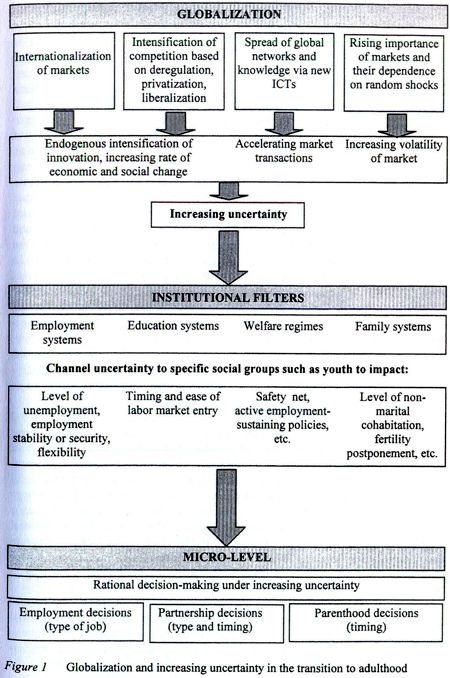Future Society V no comments
As we pointed out in our previous post, there is an imbalance between the technological overdevelopment and the social underdevelopment in our society. As the number of young unemployed reaches a record level in the UK and as the education taxes increase, the situation is not becoming any clearer and confusion and uncertainty reigns. We are going to explore the main factors of these problems and some solutions to them in the following and next post.
Globalization, Uncertainty and Youth in Society by Hans-Peter Blossfeld, Erik Klijzing, Melinda Mills and Karin Kurz published in 2005 seemed to predict the economical problems facing the world 3 years later. The main factors are:
- internalization of markets
- liberalization within nations
- accelerated diffusion of knowledge and the spread of global networks that are connecting all kinds of markets on the globe via new information and communication technologies
- rising importance of markets and their dependece on random shocks occuring somewhere on the globe ( e.g. major scientific discoveries, technical inventions, new consumer fashions, major politcal or economical upsets)
The authors mention that the markets are becoming more dynamic and more less predictable. The national institutions meant for reducing this uncertainty are employment, education and family systems as it can be seen in the figure below.
In the next post we will look at the 2007 Future Society envisioned by the Science Community of Japan report to find solutions to these global problems and to diminish uncertainties.
